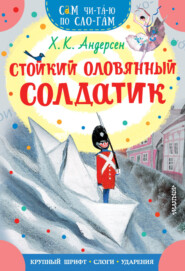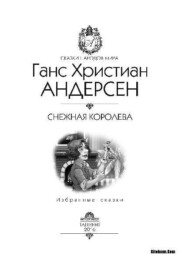По всем вопросам обращайтесь на: info@litportal.ru
(©) 2003-2024.
✖
O. T., A Danish Romance
Настройки чтения
Размер шрифта
Высота строк
Поля
“Yes, I have copied it out of the secretary’s memorandum-book; he has so many pretty pieces.”
“The secretary has many splendid things!” said Otto, smiling. “Memorandum-book, musical snuff-box”—
“And a collection of seals!” added the young lady from Holstebro.
“I must read more!” said Otto; but the ladies fled with glowing cheeks.
“Are you already at your tricks, Mr. Thostrup?” said the mother, who now entered the garden. “Yes, you do not know how Maren has thought of you—how much she has spoken of you. You never wrote to us; we never heard anything of you, except when Miss Rosalie related us something out of your letters. That was not nice of you! You and Maren were always called bride and bridegroom. You were a pair of pretty children, and your growth has not been disadvantageous to either of you.”
At four o’clock the evening party assembled—a whole swarm of young ladies, a few old ones, and the secretary, who distinguished himself by a collection of seals hanging to a long watch-chain, and everlastingly knocking against his body; a white shirt-frill, stiff collar, and a cock’s comb, in which each hair seemed to take an affected position. They all walked down to the bay. Otto had some business and came somewhat later. Whilst he was crossing, alone, the court-yard, he heard, proceeding from the back of the house, a fearful, wild cry, which ended in violent sobbing. Terrified, he went nearer, and perceived the aunt sitting in the middle of a large heap of turf. The priestess at Delphi could not have looked more agitated! Her close cap she had torn from her head; her long, gray hair floated over her shoulders; and with her feet she stamped upon the turf, like a willful child, until the pieces flew in various directions. When she perceived Otto she became calm in a moment, but soon she pressed her thin hands before her face and sobbed aloud. To learn from her what was the matter was not to be thought of.
“O, she is only quarrelsome!” said the girl, to whom Otto had turned for an explanation. “Aunt is angry because she was not invited to sail with the company. She always does so,—she can be quite wicked! Just lately, when she should have helped me to wring out the sheets, she always twisted them the same way that I did, so that we could never get done, and my hands hurt me very much!”
Otto walked down to the bay. The sail was unfurled, the secretary brought out his musical-box, and, accompanied by its tones, they glided in the burning sunshine over the water.
On the other side tea was to be drunk, and then Maren was to sing. Her mother asked her to sing the song with the strong tones, so that Otto might hear what a voice she had.
She sang “Dannevang.” Her voice had uncommon power, but no style, no grace.
“Such a voice, I fancy, you have not heard in the theatre at Copenhagen?” said the secretary, with dogmatical gravity.
“You might wish yourself such a chest!” said the lieutenant.
The secretary should now sing; but he had a little cold, which he had always.
“You must sing to the musical-box!” said the lady, and her wish was fulfilled. If Maren had only commenced, one might have believed it a trial of skill between Boreas and Zephyr.
They now walked about, drank tea, and after this they were to return to the house, there to partake of fish and roast meat, a piece of boxed ham, and other good things.
Otto could by no means be permitted to think of leaving them the following morning; he must remain a few days, and gather strength, so that in Copenhagen he might apply himself well to work. But only one day would he enjoy all the good things which they heaped upon him. He yearned for other people, for a more intellectual circle. Two years before he had agreed splendidly with them all, had found them interesting and intellectual; now he felt that Lemvig was a little town, and that the people were good, excellent people.
The following play again brought capital cookery, good foul, and good wine—that was to honor Mr. Thostrup. His health was drunk, Maren was more confidential, the aunt had forgotten her trouble, and again sat with a laughing face beside the constrained shopman. They must, it is true, make a little haste over their dinner, for the fire-engine was to be tried; and this splendor, they maintained, Otto must see, since he so fortunately chanced to lie there.
“How can my mother think that this will give Mr. Thostrup pleasure?” said Maren. “There is nothing to see in it.”
“That has given him pleasure formerly!” answered the mother. “It is, also, laughable when the boys run underneath the engine-rain, and the stream comes just in their necks.”
She spoke of the former Otto and of the present one—he was become so Copenhagenish, so refined and nice, as well in the cut of his clothes as in his manners; yet she still found an opportunity of giving him a little hint to further refinement. Only think! he took the sugar for his coffee with his fingers!
“But where are the sugar-tongs, the massive silver sugar-tongs?” asked she. “Maren, dost thou allow him to take the sugar with his fingers?”
“That is more convenient!” answered Otto. “I do that always.”
“Yes, but if strangers had been here,” said the hostess, in a friendly but teaching tone, “we must, like that grand lady you know of, have thrown the sugar out of the window.”
“In the higher circles, where people have clean fingers, they make use of them!” said Otto. “There would be no end of it if one were to take it with the sugar-tongs.”
“They are of massive silver!” said the lady, and weighed them in her hand.
Toward evening Rosalie went into the garden under the plum trees.
“These, also, remind me of my mountains,” said she; “this is the only fruit which will properly flourish there. Lemvig lies, like La Locle, in a valley,” and she pointed, smiling, to the surrounding sand-hills. “How entirely different it is here from what it is at home on thy grandfather’s estate! There I have been so accustomed to solitude, that it is almost too lively for me here. One diversion follows another.”
It was precisely this which Otto did not like. These amusements of the small towns wearied him, and he could not delight himself with them, no longer mingle in this life.
He wished to set out early the following morning. It would be too exhausting to drive along the dry road in the sun’s heat, they all declared; he must wait until the afternoon, then it would be cooler; it was, also, far pleasanter to travel in the night. Rosalie’s prayers decided him. Thus, after dinner and coffee, the horses should be put into the carriage.
It was the last day. Maren was somewhat in a grave mood. Otto must write in her album. “He would never come to Lemvig again,” said she. As children they had played with each other. Since he went to Copenhagen she had, many an evening, seated herself in the swing near the summer-house and thought of him. Who knows whether she must not have done so when she copied out of the secretary’s memorandum-book, the verses,—
“So fliessen nun zwei Wasser
Wohl zwischen mir and Dir?”
The sea certainly flows between Aarhuus and Copenhagen.
“Maren will perhaps go over for the winter,” said the mother; “but we dare not speak too much about it, for it is not yet quite settled. It will really make her gayer! lately she has been very much inclined to melancholy, although God knows that we have denied her no pleasure!”
There now arrived a quantity of letters from different acquaintance, and from their acquaintance: if Mr. Thostrup would have the goodness to take care of this to Viborg, these to Aarhuus, and the others as far as Copenhagen. It was a complete freight, such as one gets in little towns, just as though no post went through the country.
The carriage stopped before the door.
Rosalie melted into tears. “Write to me!” said she. “Thee I shall never see again! Greet my Switzerland when thou comest there!”
The others were merry. The lady sang,—
“O could I, like a cloud, but fly!”
The young lady from Holstebro bowed herself before him with an Album-leaf its her hand, upon which she must beg Mr. Thostrup to write her something. Maren gave him her hand, blushed and drew back: but as the carriage rolled away she waved her while handkerchief through the open window: “Farewell! Farewell!”
CHAPTER XX
“Stop! cried Patroclus, with mighty, thundering voice.”
—WILSTER’S Iliad.
The parting with Rosalie, the hospitality of the family, and their sincere sympathy, touched Otto; he thought upon the last days, upon his whole sojourn in his home. The death of his grandfather made this an important era in his life. The quiet evening and the solitary road inclined him still more to meditation.
How cheering and interesting had been a visit to Lemvig in former times! Then it furnished matter for conversation with Rosalie for many weeks; it now lay before him a subject of indifference. The people were certainly the same, therefore the change must have taken place in himself. He thought of Copenhagen, which stood so high, and of the people there.
“After all, the difference is not so great!” said he. “In Copenhagen the social foci are more numerous, the interests more varied; each day brings a fresh topic of conversation, and one can choose one’s society. The multitude, on the contrary, has something citizenish; it obtrudes itself even from beneath the ball-dress which shows itself at court; it is seen in the rich saloon of the wholesale merchant, as well as in the house of the brandy distiller, whose possessions give to him and his two brewers the right of election. It is the same food which is presented to us; in the small towns one has it on earthenware, in Copenhagen on china. If one had only the courage, in the so-called higher classes, to break through the gloss which life in a greater circle, which participation in the customs of the world, has called forth, one should soon find in many a lady of rank, in many a nobleman who sits not alone in the theatre, on the first bench, merely that empty common earthenware; and that, as with the merchant’s wife in Lemvig, a déjeuner or a soirée, like some public event, will occupy the mind before and after its occurrence. A court-ball, at which either the son or daughter has figured, resembles the most brilliant success in an examination for office. We laugh at the authorities of Lemvig, and yet with us the crowd runs after nothing but authorities and newspapers. This is a certain state of innocence. How many a poor officer or student must play the subordinate part of the shopman at the table of the rich, and gratefully kiss the hand of the lady of the house because she has the right of demanding gratitude? And in the theatre, with the multitude, what does not ‘an astonishing chest’ do? A strength of voice which can penetrate right through the leather of the mind gains stormy applause, whilst taste and execution can only be appreciated by the few. The actor can be certain of applause if he only thunder forth his parting reply. The comedian is sure of a shout of bravo if he puts forth an insipidity, and rubs his legs together as if replying with spirit and humor. The massive plate in the house gives many a lady the boldness to teach that in which she herself might perhaps have been instructed. Many a lady, like the Mamsell from Holstebro, dresses always in silk and a long shawl, and if one asks after her profession one finds it consists at most in dress-making; perhaps she does not even possess the little accompanying talent of playing the flute. How many people do not copy, like Maren, out of other people’s memorandum-books, and do not excel musical-boxes! still one hears a deal of musical snuff-box music, and is waited upon by voices which are equally as insignificant as the secretary’s.”
These were pretty much Otto’s reflections, and certainly it was a good feeling which lay at the bottom of them. Let us remember in our judgment that he was so young, and that he had only known Copenhagen one year; otherwise he would most certainly have thought quite differently.
Night spread itself over the heath, the heavens were clear. Slowly the carriage wound along through the deep sand. The monotonous sound, the unchanging motion, all rendered Otto sleepy. A falling star shot like a fire column across the sky—this woke him for a moment; he soon again bowed his head and slept, fast and deep. It was an hour past midnight, when he was awoke by a loud cry. He started up—the fire burnt before them; and between it and the horse stood two figures, who had taken hold of the leather reins. Close beside them was a cart, under which was placed a sort of bed, on which slept a woman and some children.
“Will you drive into the soup-kettle?” asked a rough voice, whilst another scolded in a gibberish which was unintelligible to Otto.
It had happened to the coachman as to him, only that the coachman had fallen asleep somewhat later; the horses had lost their track, and uncertain, as they had long been, they were now traversing the impassable heath. A troop of the so-called Scavengers, who wander through these districts a nomadic race, had here taken up their quarters for the night, had made a fire and hung the kettle over it, to cook some pieces of a lamb they had stolen on their journey.
“They were about half a mile from the highway,” said an elderly woman who was laying some bushes of heath under the kettle.
“The secretary has many splendid things!” said Otto, smiling. “Memorandum-book, musical snuff-box”—
“And a collection of seals!” added the young lady from Holstebro.
“I must read more!” said Otto; but the ladies fled with glowing cheeks.
“Are you already at your tricks, Mr. Thostrup?” said the mother, who now entered the garden. “Yes, you do not know how Maren has thought of you—how much she has spoken of you. You never wrote to us; we never heard anything of you, except when Miss Rosalie related us something out of your letters. That was not nice of you! You and Maren were always called bride and bridegroom. You were a pair of pretty children, and your growth has not been disadvantageous to either of you.”
At four o’clock the evening party assembled—a whole swarm of young ladies, a few old ones, and the secretary, who distinguished himself by a collection of seals hanging to a long watch-chain, and everlastingly knocking against his body; a white shirt-frill, stiff collar, and a cock’s comb, in which each hair seemed to take an affected position. They all walked down to the bay. Otto had some business and came somewhat later. Whilst he was crossing, alone, the court-yard, he heard, proceeding from the back of the house, a fearful, wild cry, which ended in violent sobbing. Terrified, he went nearer, and perceived the aunt sitting in the middle of a large heap of turf. The priestess at Delphi could not have looked more agitated! Her close cap she had torn from her head; her long, gray hair floated over her shoulders; and with her feet she stamped upon the turf, like a willful child, until the pieces flew in various directions. When she perceived Otto she became calm in a moment, but soon she pressed her thin hands before her face and sobbed aloud. To learn from her what was the matter was not to be thought of.
“O, she is only quarrelsome!” said the girl, to whom Otto had turned for an explanation. “Aunt is angry because she was not invited to sail with the company. She always does so,—she can be quite wicked! Just lately, when she should have helped me to wring out the sheets, she always twisted them the same way that I did, so that we could never get done, and my hands hurt me very much!”
Otto walked down to the bay. The sail was unfurled, the secretary brought out his musical-box, and, accompanied by its tones, they glided in the burning sunshine over the water.
On the other side tea was to be drunk, and then Maren was to sing. Her mother asked her to sing the song with the strong tones, so that Otto might hear what a voice she had.
She sang “Dannevang.” Her voice had uncommon power, but no style, no grace.
“Such a voice, I fancy, you have not heard in the theatre at Copenhagen?” said the secretary, with dogmatical gravity.
“You might wish yourself such a chest!” said the lieutenant.
The secretary should now sing; but he had a little cold, which he had always.
“You must sing to the musical-box!” said the lady, and her wish was fulfilled. If Maren had only commenced, one might have believed it a trial of skill between Boreas and Zephyr.
They now walked about, drank tea, and after this they were to return to the house, there to partake of fish and roast meat, a piece of boxed ham, and other good things.
Otto could by no means be permitted to think of leaving them the following morning; he must remain a few days, and gather strength, so that in Copenhagen he might apply himself well to work. But only one day would he enjoy all the good things which they heaped upon him. He yearned for other people, for a more intellectual circle. Two years before he had agreed splendidly with them all, had found them interesting and intellectual; now he felt that Lemvig was a little town, and that the people were good, excellent people.
The following play again brought capital cookery, good foul, and good wine—that was to honor Mr. Thostrup. His health was drunk, Maren was more confidential, the aunt had forgotten her trouble, and again sat with a laughing face beside the constrained shopman. They must, it is true, make a little haste over their dinner, for the fire-engine was to be tried; and this splendor, they maintained, Otto must see, since he so fortunately chanced to lie there.
“How can my mother think that this will give Mr. Thostrup pleasure?” said Maren. “There is nothing to see in it.”
“That has given him pleasure formerly!” answered the mother. “It is, also, laughable when the boys run underneath the engine-rain, and the stream comes just in their necks.”
She spoke of the former Otto and of the present one—he was become so Copenhagenish, so refined and nice, as well in the cut of his clothes as in his manners; yet she still found an opportunity of giving him a little hint to further refinement. Only think! he took the sugar for his coffee with his fingers!
“But where are the sugar-tongs, the massive silver sugar-tongs?” asked she. “Maren, dost thou allow him to take the sugar with his fingers?”
“That is more convenient!” answered Otto. “I do that always.”
“Yes, but if strangers had been here,” said the hostess, in a friendly but teaching tone, “we must, like that grand lady you know of, have thrown the sugar out of the window.”
“In the higher circles, where people have clean fingers, they make use of them!” said Otto. “There would be no end of it if one were to take it with the sugar-tongs.”
“They are of massive silver!” said the lady, and weighed them in her hand.
Toward evening Rosalie went into the garden under the plum trees.
“These, also, remind me of my mountains,” said she; “this is the only fruit which will properly flourish there. Lemvig lies, like La Locle, in a valley,” and she pointed, smiling, to the surrounding sand-hills. “How entirely different it is here from what it is at home on thy grandfather’s estate! There I have been so accustomed to solitude, that it is almost too lively for me here. One diversion follows another.”
It was precisely this which Otto did not like. These amusements of the small towns wearied him, and he could not delight himself with them, no longer mingle in this life.
He wished to set out early the following morning. It would be too exhausting to drive along the dry road in the sun’s heat, they all declared; he must wait until the afternoon, then it would be cooler; it was, also, far pleasanter to travel in the night. Rosalie’s prayers decided him. Thus, after dinner and coffee, the horses should be put into the carriage.
It was the last day. Maren was somewhat in a grave mood. Otto must write in her album. “He would never come to Lemvig again,” said she. As children they had played with each other. Since he went to Copenhagen she had, many an evening, seated herself in the swing near the summer-house and thought of him. Who knows whether she must not have done so when she copied out of the secretary’s memorandum-book, the verses,—
“So fliessen nun zwei Wasser
Wohl zwischen mir and Dir?”
The sea certainly flows between Aarhuus and Copenhagen.
“Maren will perhaps go over for the winter,” said the mother; “but we dare not speak too much about it, for it is not yet quite settled. It will really make her gayer! lately she has been very much inclined to melancholy, although God knows that we have denied her no pleasure!”
There now arrived a quantity of letters from different acquaintance, and from their acquaintance: if Mr. Thostrup would have the goodness to take care of this to Viborg, these to Aarhuus, and the others as far as Copenhagen. It was a complete freight, such as one gets in little towns, just as though no post went through the country.
The carriage stopped before the door.
Rosalie melted into tears. “Write to me!” said she. “Thee I shall never see again! Greet my Switzerland when thou comest there!”
The others were merry. The lady sang,—
“O could I, like a cloud, but fly!”
The young lady from Holstebro bowed herself before him with an Album-leaf its her hand, upon which she must beg Mr. Thostrup to write her something. Maren gave him her hand, blushed and drew back: but as the carriage rolled away she waved her while handkerchief through the open window: “Farewell! Farewell!”
CHAPTER XX
“Stop! cried Patroclus, with mighty, thundering voice.”
—WILSTER’S Iliad.
The parting with Rosalie, the hospitality of the family, and their sincere sympathy, touched Otto; he thought upon the last days, upon his whole sojourn in his home. The death of his grandfather made this an important era in his life. The quiet evening and the solitary road inclined him still more to meditation.
How cheering and interesting had been a visit to Lemvig in former times! Then it furnished matter for conversation with Rosalie for many weeks; it now lay before him a subject of indifference. The people were certainly the same, therefore the change must have taken place in himself. He thought of Copenhagen, which stood so high, and of the people there.
“After all, the difference is not so great!” said he. “In Copenhagen the social foci are more numerous, the interests more varied; each day brings a fresh topic of conversation, and one can choose one’s society. The multitude, on the contrary, has something citizenish; it obtrudes itself even from beneath the ball-dress which shows itself at court; it is seen in the rich saloon of the wholesale merchant, as well as in the house of the brandy distiller, whose possessions give to him and his two brewers the right of election. It is the same food which is presented to us; in the small towns one has it on earthenware, in Copenhagen on china. If one had only the courage, in the so-called higher classes, to break through the gloss which life in a greater circle, which participation in the customs of the world, has called forth, one should soon find in many a lady of rank, in many a nobleman who sits not alone in the theatre, on the first bench, merely that empty common earthenware; and that, as with the merchant’s wife in Lemvig, a déjeuner or a soirée, like some public event, will occupy the mind before and after its occurrence. A court-ball, at which either the son or daughter has figured, resembles the most brilliant success in an examination for office. We laugh at the authorities of Lemvig, and yet with us the crowd runs after nothing but authorities and newspapers. This is a certain state of innocence. How many a poor officer or student must play the subordinate part of the shopman at the table of the rich, and gratefully kiss the hand of the lady of the house because she has the right of demanding gratitude? And in the theatre, with the multitude, what does not ‘an astonishing chest’ do? A strength of voice which can penetrate right through the leather of the mind gains stormy applause, whilst taste and execution can only be appreciated by the few. The actor can be certain of applause if he only thunder forth his parting reply. The comedian is sure of a shout of bravo if he puts forth an insipidity, and rubs his legs together as if replying with spirit and humor. The massive plate in the house gives many a lady the boldness to teach that in which she herself might perhaps have been instructed. Many a lady, like the Mamsell from Holstebro, dresses always in silk and a long shawl, and if one asks after her profession one finds it consists at most in dress-making; perhaps she does not even possess the little accompanying talent of playing the flute. How many people do not copy, like Maren, out of other people’s memorandum-books, and do not excel musical-boxes! still one hears a deal of musical snuff-box music, and is waited upon by voices which are equally as insignificant as the secretary’s.”
These were pretty much Otto’s reflections, and certainly it was a good feeling which lay at the bottom of them. Let us remember in our judgment that he was so young, and that he had only known Copenhagen one year; otherwise he would most certainly have thought quite differently.
Night spread itself over the heath, the heavens were clear. Slowly the carriage wound along through the deep sand. The monotonous sound, the unchanging motion, all rendered Otto sleepy. A falling star shot like a fire column across the sky—this woke him for a moment; he soon again bowed his head and slept, fast and deep. It was an hour past midnight, when he was awoke by a loud cry. He started up—the fire burnt before them; and between it and the horse stood two figures, who had taken hold of the leather reins. Close beside them was a cart, under which was placed a sort of bed, on which slept a woman and some children.
“Will you drive into the soup-kettle?” asked a rough voice, whilst another scolded in a gibberish which was unintelligible to Otto.
It had happened to the coachman as to him, only that the coachman had fallen asleep somewhat later; the horses had lost their track, and uncertain, as they had long been, they were now traversing the impassable heath. A troop of the so-called Scavengers, who wander through these districts a nomadic race, had here taken up their quarters for the night, had made a fire and hung the kettle over it, to cook some pieces of a lamb they had stolen on their journey.
“They were about half a mile from the highway,” said an elderly woman who was laying some bushes of heath under the kettle.

















